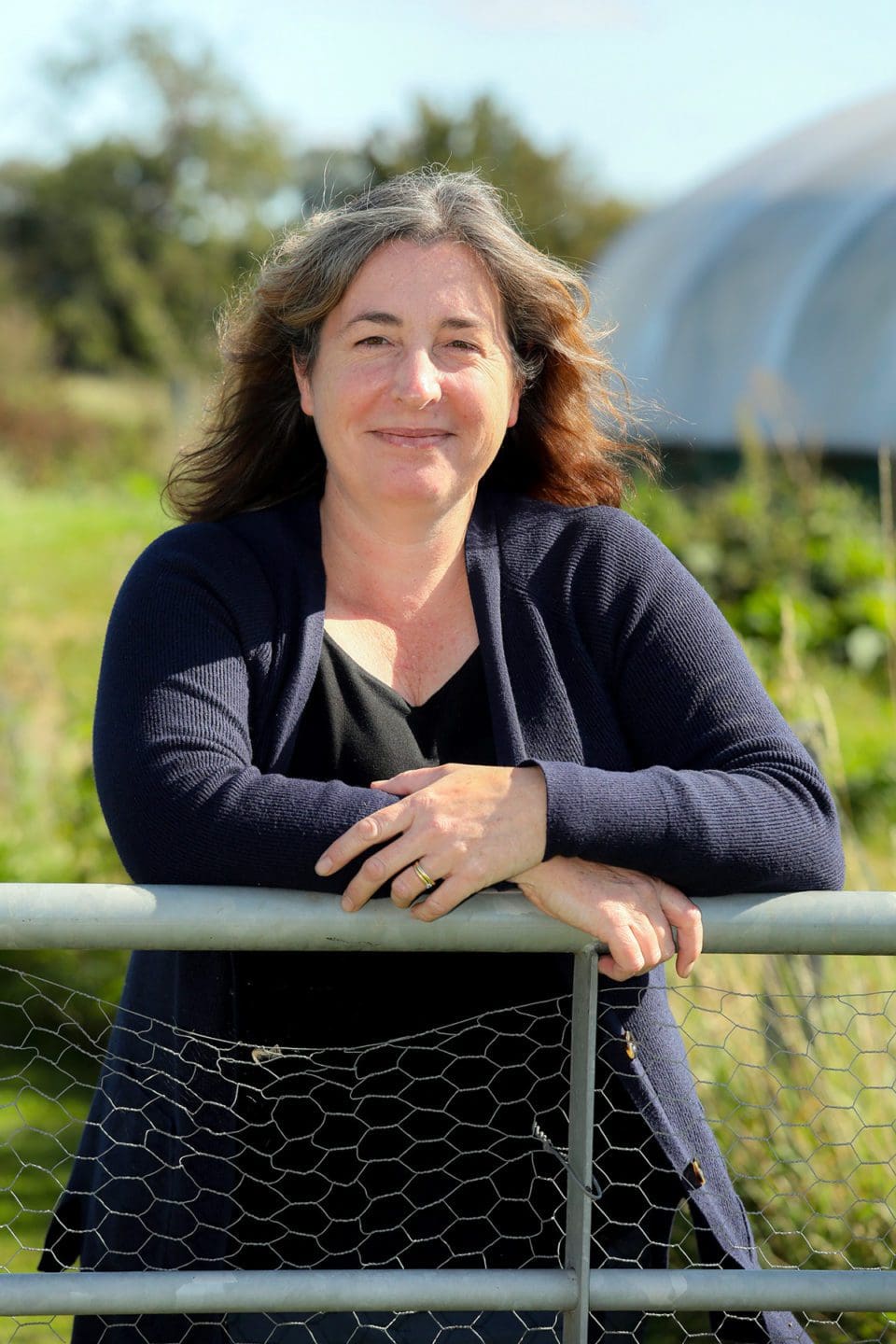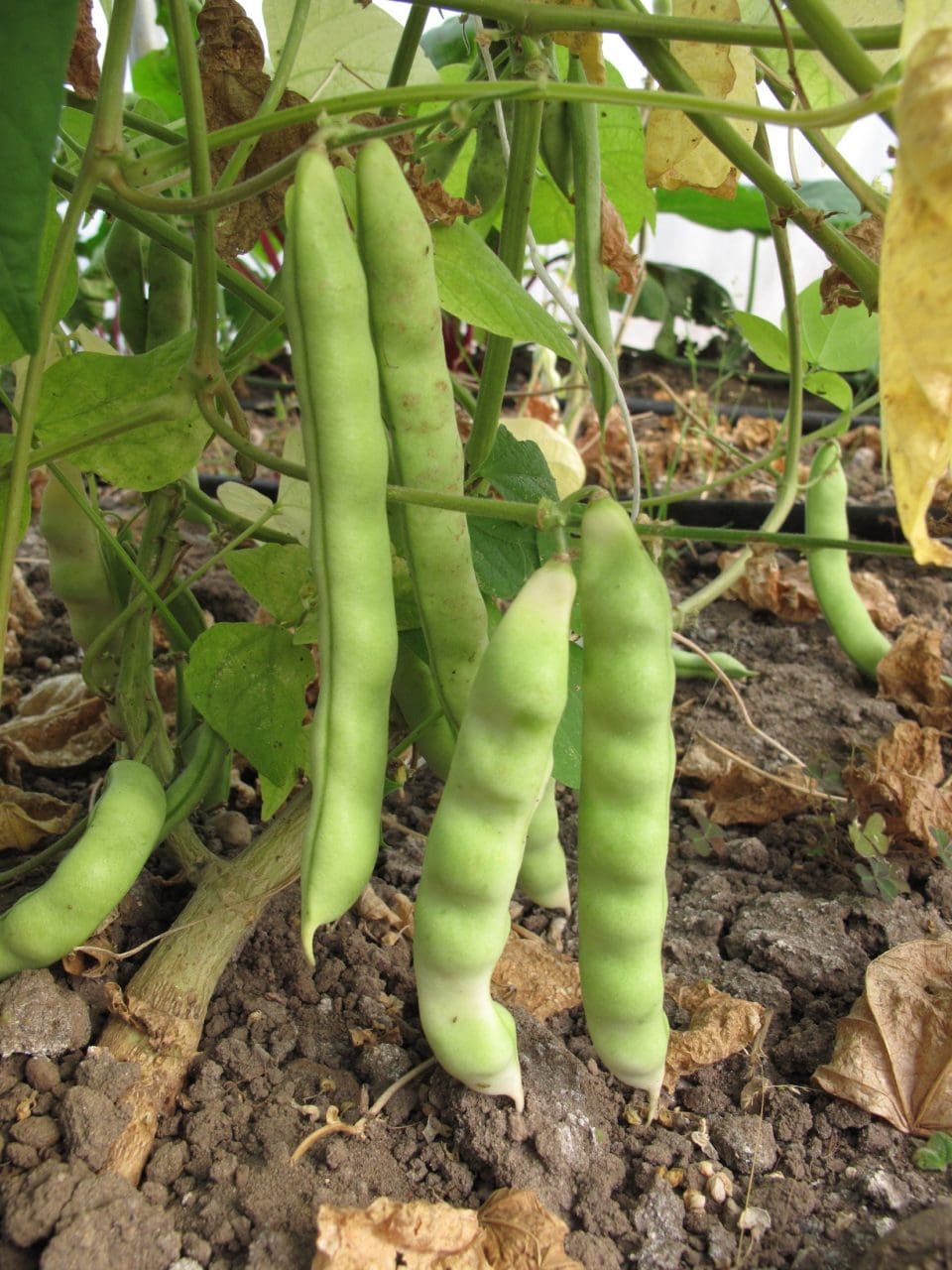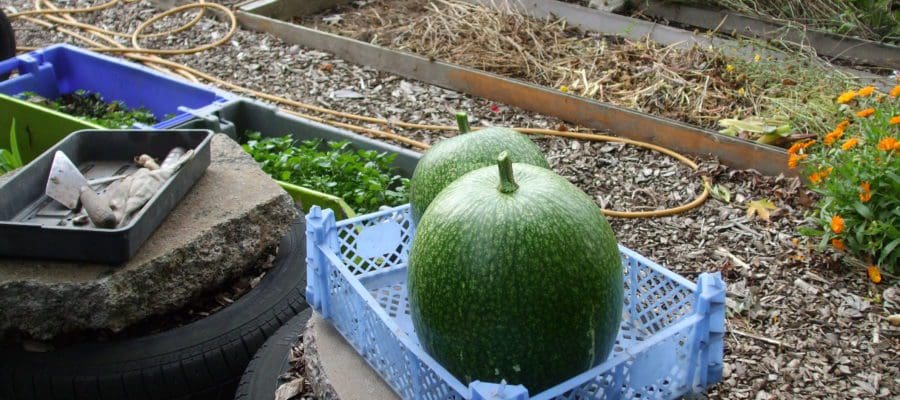Go behind the scenes to discover how rare and unusual vegetables are being conserved for the future
Coventry-based horticultural charity, Garden Organic conserves and grows 800 varieties of scarce vegetable cultivars for seed at Ryton Gardens, just outside the city centre, to ensure they don’t disappear from use.
This summer, the charity is hosting two exclusive tours, giving visitors the chance to learn about the special methods used to isolate and pollinate these plants so that the precious varieties are conserved and remain true to type for future generations.
Enjoy more Kitchen Garden reading in the monthly magazine.
Click here to subscribe & save.
Visitors will also come away having learnt some tricks of the trade so they can start their own seed-saving adventures, whatever their experience.
Catrina Fenton, Head of the Heritage Seed Library at Garden Organic, explains: “In our lifetime, many hundreds of local vegetable varieties, grown by generations of families and in communities, have been lost as changing horticultural and agricultural practices, along with seed legislation, have taken their toll on our cultivated biodiversity.”
“Garden Organic’s Heritage Seed Library was established in response to this situation, and today we maintain a thriving library of around 800 heritage vegetable varieties that are not widely or commercially available.
“The tour of our Heritage Seed Library will introduce you to some of these unique and unusual varieties and reveal what, how, and why we grow these open-pollinated varieties for seed. This is not simply about preserving the past, but about conserving this important genetic resource for our future resilience.”

Each year, Garden Organic puts together a list of around 150 varieties of their heritage seed collection for members of the Heritage Seed Library to choose from, free of charge, to encourage people to grow and put these rare vegetables back on their plates.
This year, the library is growing around 90 different crops and tour participants should particularly look out for:
- Hong’s Shark Fin Melon, a Central American and Asian variety cultivated by Brummie Mr Hong on his allotment in Handsworth, Birmingham, so-called for resembling shark fin soup when used in a traditional broth.
- White Queen tomato, a creamy white-fleshed and fragrant variety from Ohio dating back to1882 and the Best of All tomato, an immense cropper introduced by Suttons in 1895 that was available commercially until the late 1980s.
- The delightfully named Turkey Craw French Bean originating in the Appalachians is said to have been removed from the crop of a dead turkey by a hunter in the nineteenth century, hence the name. Garden Organic are a bit dubious about this claim though! Make sure you also look out for the Black Pod runner bean, with its purple-tinted pods and scarlet flowers. These were donated by a family in Bridgnorth, Shropshire, where they had been growing it for at least 100 years. The Percy Parker Climbing French bean and the Chicago Warted Hubbard squash will also be on display.
- Phil Bannister’s White maize was collected in Birmingham from a late Master Gardener and Seed Steward and named in his memory. The corn cobs make for an elegant addition to the garden, having pearly white kernels traditionally used as maize meal.

Catrina says, “Visitors never fail to be amazed at the range of unique varieties to be discovered, what makes them special and just what it takes to keep them that way. There are also some quite funny and interesting stories around their origins!”
Using covered polytunnels or outdoor beds, the Garden Organic team are able to prevent cross-pollination and save seeds from only the best plants to ensure the varieties stay pure.
Visitors also get a glimpse into the conservation work that the charity does, such as previewing growing trials of recently rediscovered heritage varieties. With all the vegetable varieties in the Heritage Seed Library adapted to the UK’s growing conditions, they could hold vital secrets to resilience against climate change and pests and diseases.
If visitors are left feeling inspired to grow heritage seeds in their own garden, they can become a member of Garden Organic and the Heritage Seed Library, allowing them to choose up to six packets of seeds a year to sow themselves.
“By growing seeds from the Heritage Seed Library, you are supporting the preservation of our country’s vegetable legacy for generations to come – which is incredibly important. We’re so grateful to everyone who gets involved,” Catrina added.
Tour Information
Heritage Seed Library Tours take place on the 20th August and 17th September 2022.
Tours start at 10:15am and last for around 60 minutes. Following the tour, visitors can explore independently and attend a Q&A session with the Heritage Seed Library Team. The formal programme finishes at 11:30am, with light refreshments being available 10:00am–12:00pm.
For bookings, visit: https://www.gardenorganic.org.uk/events
 Enjoy more Kitchen Garden reading in the monthly magazine. Click here to subscribe.
Enjoy more Kitchen Garden reading in the monthly magazine. Click here to subscribe.
Sign-up to the Kitchen Garden Magazine Newsletter
Enter your e-mail address below to see a free digital back issue of Kitchen Garden Magazine and get regular updates straight to your inbox…
You can unsubscribe at any time.
About the Author
- FREE ORGANIC SEEDS WITH YOUR SHOPPING - 24th April 2024
- PRODUCT REVIEWS: PLANTING TOOLS (MAY 24) - 20th April 2024
- RHS Chelsea Flower Show 2024: The Bowel Research UK’s Microbiome Garden - 9th April 2024









